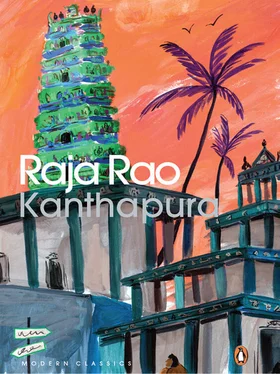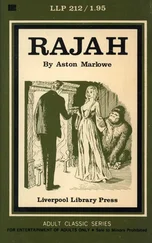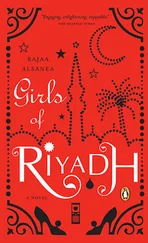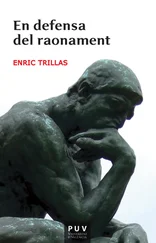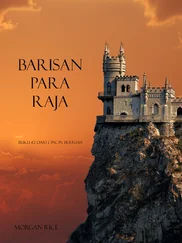‘Oh, is it Bhattarè? Pardon me. I’m Badè Khan the policeman. I’d just gone to Rama Chetty for some provisions. ’
‘It does not matter, sahib,’ says Bhatta.
‘Oh, it does matter, maharaja. I fall at your feet.’
Now what Bhatta had said was at the river the next morning, and Waterfall Venkamma said, ‘Well done, well done! That’s how it should be — this Moorthy and his city talk.’ And Temple Lakshamma said that Moorthy could do what he liked in his own house but in this village there should be none of this Pariah business, and Venkamma and Timmamma looked approvingly at Post-office-house young Chinnamma, who said it was all untrue, for Moorthy was such a deep-voiced, God-loving person, and would do no mixing of castes. But when they saw old Narsamma, Moorthy’s mother, they fell to talking of this and that, and they did not even answer her ‘How are you all, sisters?’ Old Narsamma went and placed the clothes basket beneath the serpent pipal, and sat over the platform for a moment to rest. She was a pious old woman, Narsamma, tall and thin, and her big, broad ash-marks gave her such an air of ascetic holiness. She was nearing sixty-five years of age, and it was not for nothing she had borne eleven children, five of them dead; and of the remaining six, Moorthy was the only son; the rest were daughters, married here and there, one to a shanbhog across the Mysore border, another to a priest, and another to a landowner, another to a revenue inspector, and the last one to a court clerk — all well married, with large families of brothers-in-law and sisters-in-law, and all of them blessed with children except Sata, the second daughter who never had a child in spite of all her money and pilgrimages. But it was Moorthy, the youngest, whom Narsamma loved the most — the youngest is always the holy bull, they say, don’t they? — and she thought that he, with his looks and his intelligence, should one day be a sub-collector at least. And why not? He was so brilliant in school, and he was so deferential in his ways. And they began to ask for his horoscope when he was hardly sixteen.
But Moorthy would have none of this. For, as everybody knew, one day he had seen a vision, a vision of the Mahatma, mighty and God-beaming, and stealing between the Volunteers, Moorthy had got on to the platform, and he stood by the Mahatma, and the very skin of the Mahatma seemed to send out a mellowed force and love, and he stood by one of the fanners and whispered, ‘Brother, the next is me.’ And the fanner fanned on and the Mahatma spoke on, and Moorthy looked from the audience to the Mahatma and from the Mahatma to the audience, and he said to himself, ‘There is in it something of the silent communion of the ancient books,’ and he turned again to the fanner and said, ‘Brother, only when you are tired?’ And the fanner said, ‘Take it, brother,’ and Moorthy stood by the Mahatma and the fan went once this side and once that, and beneath the fan came a voice deep and stirring that went out to the hearts of those men and women and came streaming back through the thrumming air, and went through the fan and the hair and the nails of Moorthy into the very limbs, and Moorthy shivered, and then there came flooding up in rings and ripples, ‘Gandhi Mahatma ki jai!’—’Jai Mahatma!’ and as it broke against Moorthy, the fan went faster and faster over the head of the Mahatma, and perspiration flowed down the forehead of Moorthy. Then came a dulled silence of his blood and he said to himself, ‘Let me listen,’ and he listened, and in listening heard, ‘There is but one force in life and that is truth, and there is but one love in life and that is the love of mankind, and there is but one God in life and that is the God of all,’ and then came a shiver and he turned to the one behind him and said, ‘Brother,’ and the man took the fan from Moorthy and Moorthy trembled back and sought his way out to the open, but there were men all about him and behind the men, women, and behind them carts and bullocks and behind them the river, and Moorthy said to himself, ‘No, I cannot go.’ And he sat beside the platform, his head in his hands, and tears came to his eyes, and he wept softly, and with weeping came peace. He stood up, and he saw there, by the legs of the chair, the sandal and the foot of the Mahatma, and he said to himself, ‘That is my place.’ And suddenly there was a clapping of hands and shoutings of ‘Vandè Mataram, Gandhi Mahatma ki jai!’ and he put forth his hands and cried, ‘Mahatma Gandhi ki jai!’ And as there was fever and confusion about the Mahatma, he jumped on to the platform, slipped between this person and that and fell at the feet of the Mahatma, saying, ‘I am your slave.’ The Mahatma lifted him up and, before them all, he said, ‘What can I do for you, my son?’ and Moorthy said, like Hanuman to Rama, ‘Any command,’ and the Mahatma said, ‘I give no command save to seek truth,’ and Moorthy said, ‘I am ignorant, how can I seek Truth?’ and the people around him were trying to hush him and to take him away, but the Mahatma said, ‘You wear foreign cloth, my son.’—’It will go Mahatmaji.’—’You perhaps go to a foreign university.’—’It will go, Mahatmaji.’—’You can help your country by going and working among the dumb millions of the villages.’—’So be it, Mahatmaji,’ and the Mahatma patted him on the back, and through that touch was revealed to him as the day is revealed to the night the sheathless being of his soul; and Moorthy drew away, and as it were with shut eyes groped his way through the crowd to the bank of the river. And he wandered about the fields and the lanes and the canals and when he came back to the college that evening, he threw his foreign clothes and his foreign books into the bonfire, and walked out, a Gandhi’s man.
That’s how it was that he returned to our village in the middle of the last harvest, and when Narsamma saw him coming down the Karwar road, his bundle in his hand, she cried out, ‘What is it, my son, that brings you here?’ and he told her of the Mahatma he had seen and of the schools that were corrupt, and Narsamma fell upon the floor and began to weep and to cry, saying that she would never look upon his face again. But, after all, she let him stay and she was glad to have him at home. She said, ‘You need not be a sub-collector or an assistant commissioner. You can look after your hereditary lands and have your two meals a day. ’ And the very next week there turned up Santapur Patwari Venkataramayya to offer his third daughter in marriage; but Waterfall Venkamma said that her daughter’s horoscope went incomparably better, and Nose-scratching Nanjamma said her granddaughter Sita was only seven years old but she should be married soon, if Moorthy would only say, ‘Yes, Aunt!’ But Moorthy simply said he did not wish to marry, and when Narsamma said, ‘You are a grown-up boy, Moorthy, and if you don’t marry now, you will take to evil ways,’ Moorthy, deferential as ever, said, ‘No, Mother. I swear upon my holy thread I shall keep pure and noble and will bring no evil to my ancestors.’ But every time there was a horoscope moving about, Narsamma always had it compared with Moorthy’s, for one day he would surely marry. He was the only son and she would have liked to close her eyes with an ever-lit house and sons and grandsons that would offer unfailing oblations to the manes. And when Moorthy began this Gandhi affair she was glad everybody talked to him and came to see him, and she hoped this way Maddur Coffee-planter Venkatanarayana himself would offer his daughter in marriage. After all Moorthy, too, had twenty-seven acres of wet land and fifty-four acres of dry land, and a cardamom garden, and a twenty-five-tree mango grove, and a small coffee plantation. Surely Venkatanarayana would offer his daughter in marriage! And there would be such a grand marriage, with a city band and motor cars and such an army of cooks, and there would be such a royal procession in the very heart of the city, with fire display and all. A real grand marriage, I tell you!
Читать дальше
